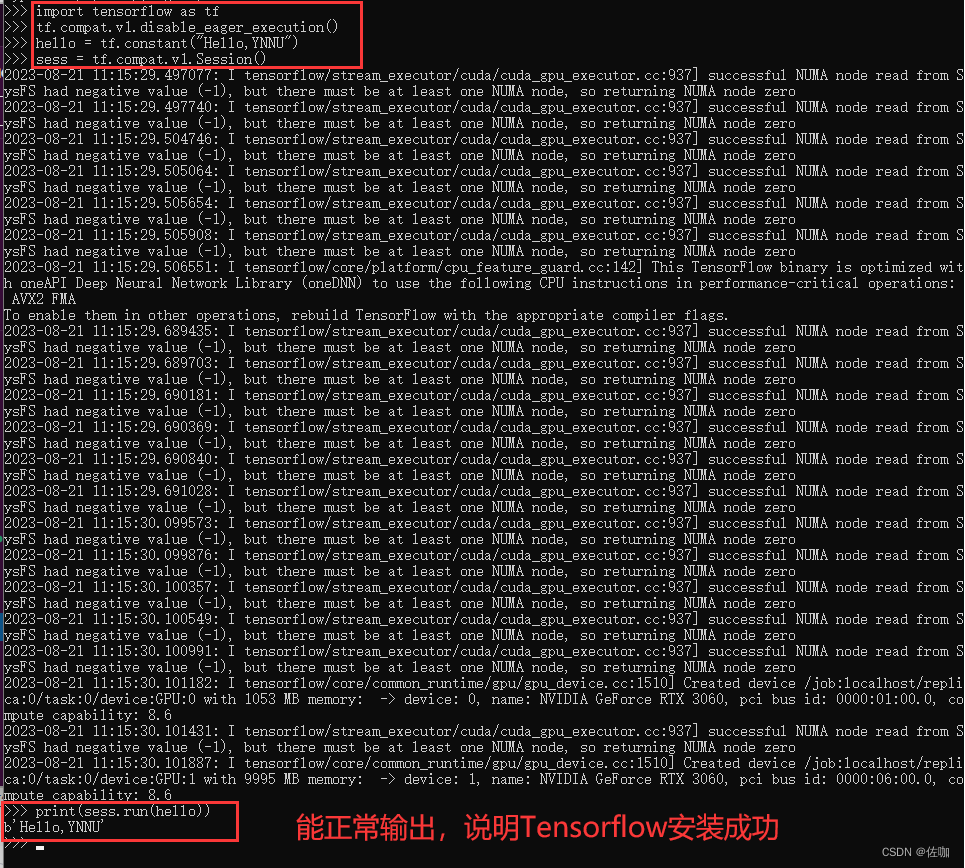版本问题
查询资料发现,多数检验Tensorflow是否安装成功的方法,多数方法都是1.xx版本的,直接使用1.xx版本的测是代码还会报一下错误:
AttributeError: module 'tensorflow' has no attribute 'Session'
之所以出现该问题是因为tf.Session()是tensorflow1.X中的代码,所以得修改一下代码。
Tensorflow 1.xx的测试代码:
import tensorflow as tf # 导入TensorFlow模块,并缩写为tf
hello = tf.constant(‘Hello, TensorFlow!’) #使用TensorFlow的constant方法创建一个字符串Tensor,其值为'Hello, YNNU'
sess = tf.Session() # 创建一个TensorFlow Session对象,该对象用于启动图,调用图中的op
print(sess.run(hello)) # 调用Session的run方法运行hello op。run方法需要传入要运行的op或者Tensor,这里传入hello Tensor。
# sess.run会把hello Tensor运算成一个字符串的值,并返回。
Tensorflow 2.xx的测试代码:
import tensorflow as tf
tf.compat.v1.disable_eager_execution()
hello = tf.constant("Hello,YNNU")
sess = tf.compat.v1.Session()
print(sess.run(hello))
Tensorflow 2.6版本实际的测验结果
由于我自己安装的是tensorflow 2.6版本,这里主要实际演示2.xx版本的实验结果,如下:

总结
以上就是Linux系统下检验Tensorflow 2.xx版本和1.xx版本是否安装成功,学者根据自己的版本对应测试,多多支持,谢谢!